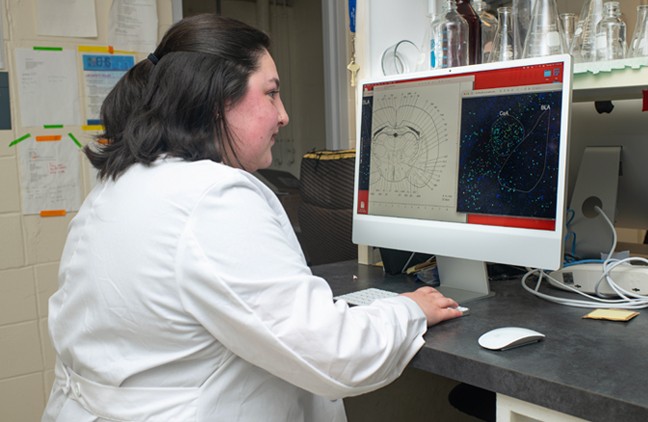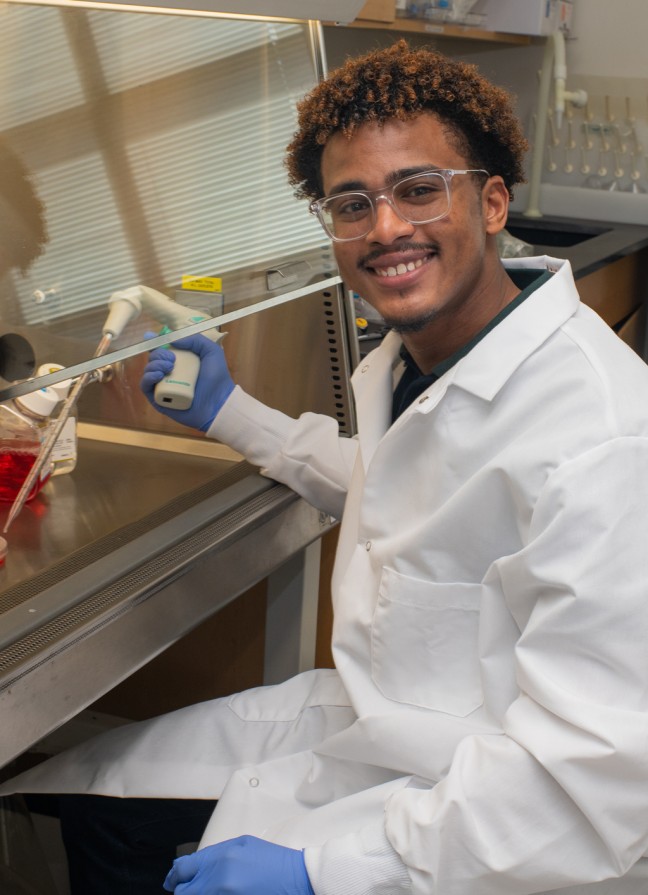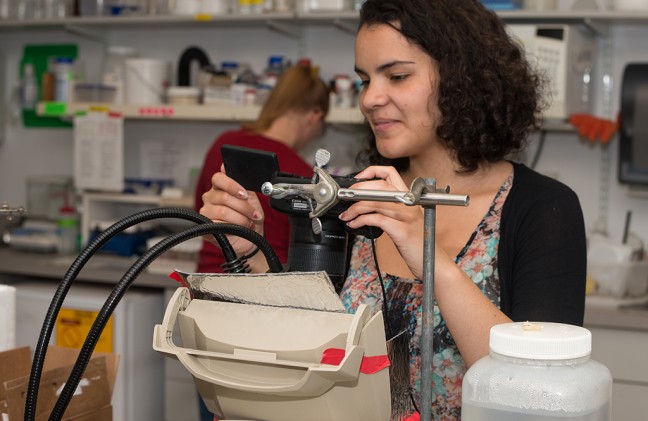Creating a Research Community for Cell Signaling
The Center for Cell Signaling Research (CCSR) is funded by a five-year, $10.8 million Institutional Development Award (IDeA) from the National Institutes of Health's Center of Biomedical Research Excellence (COBRE) program. The COBRE program supports the development of innovative biomedical research centers through awards for three sequential five-year phases.
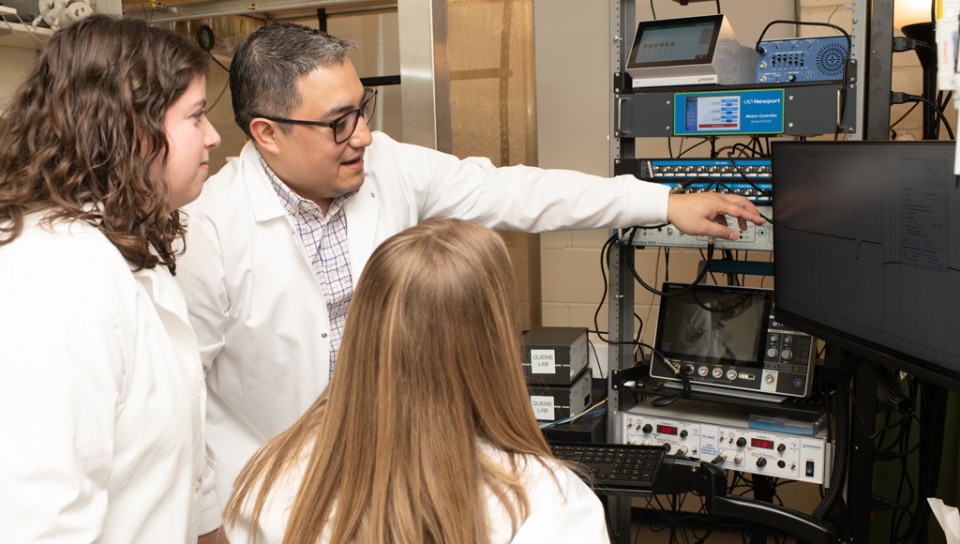
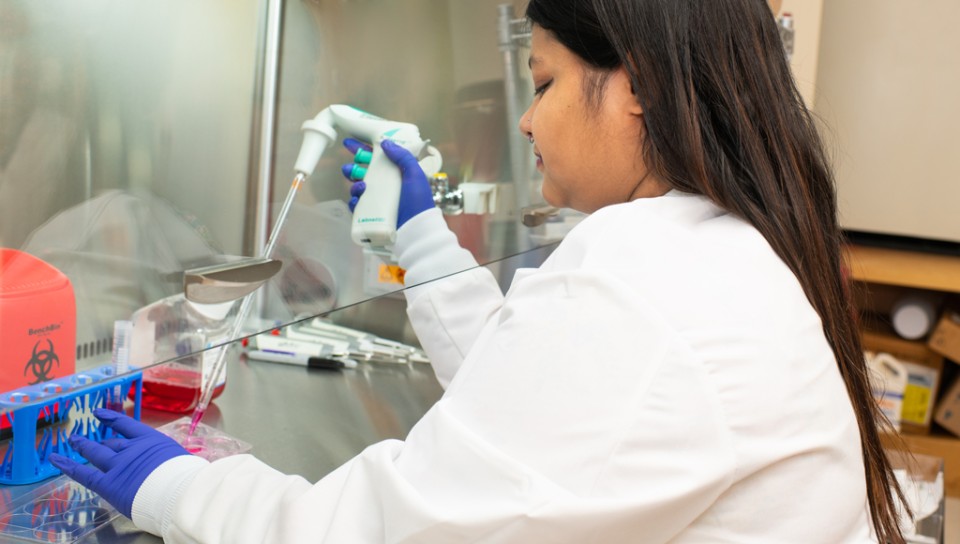
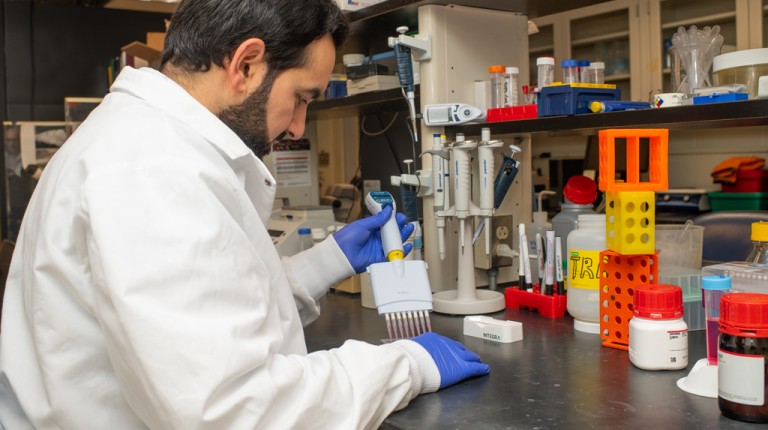
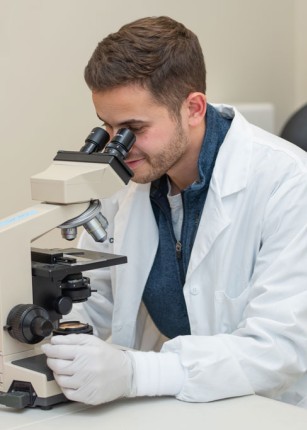
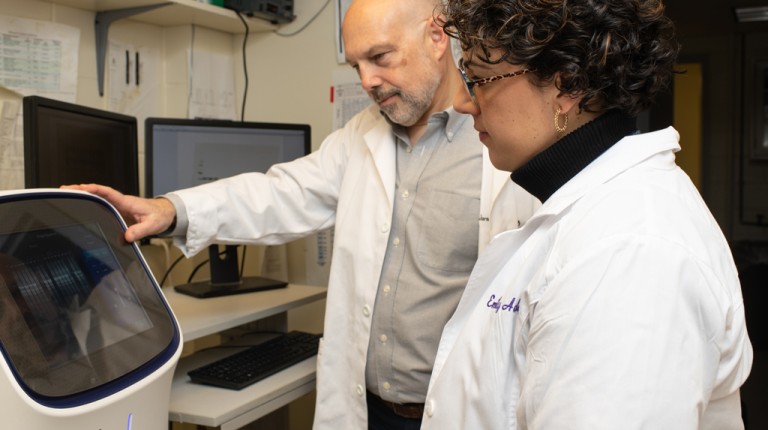
Mission
The Center for Cell Signaling Research (CCSR) focuses on studying defects in how cells communicate. Cell signaling allows cells to work together within a tissue and for tissues to function properly together in the body. Defects in these processes are fundamental to the development of human diseases, including diseases of metabolism, wound healing, osteoporosis, and chronic pain. The CCSR’s goal is to create a self-sustaining research community at UNE in the cell signaling field, which represents an important component of UNE’s mission to expand biomedical research infrastructure and capabilities.
The center is recruiting new research faculty to UNE, building new research infrastructure for cutting-edge research, providing mentorship for junior faculty, and supporting new project development through a competitive pilot project program.
Aims
- Create a critical mass of investigators at UNE necessary to sustain a vibrant and competitive research center in the field of cell signaling. The center supports the research programs and professional development of four promising junior faculty, administers a pilot project program to fund new project development for additional investigators, and provides start-up funds for the recruitment of new faculty whose research programs are aligned with the center’s focus.
- Expand the research infrastructure at UNE to promote innovative research in cell signaling. The center supports the renovation of laboratory space in the Harold Alfond Center for Health Sciences to create 5,000 square feet of new research space on the Biddeford Campus. It also maintains a new In Vitro Analytical Core (IVAC) facility with trained staff to provide instrumentation, training, and research services that enhance research across the University. The IVAC works with the Behavioral Core and the Histology and Imaging Core to develop new protocols and provide integrated services that support researchers at UNE.
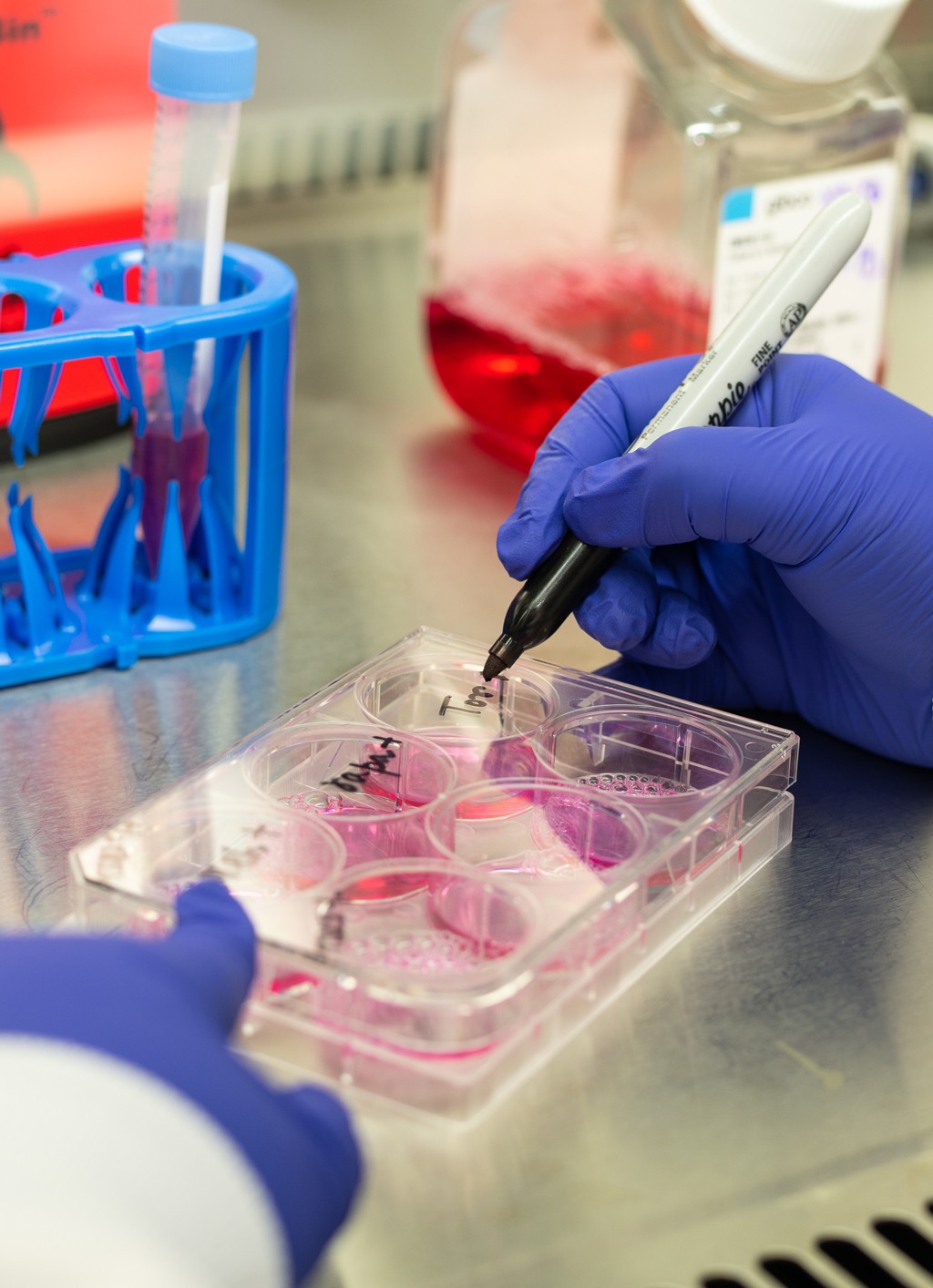
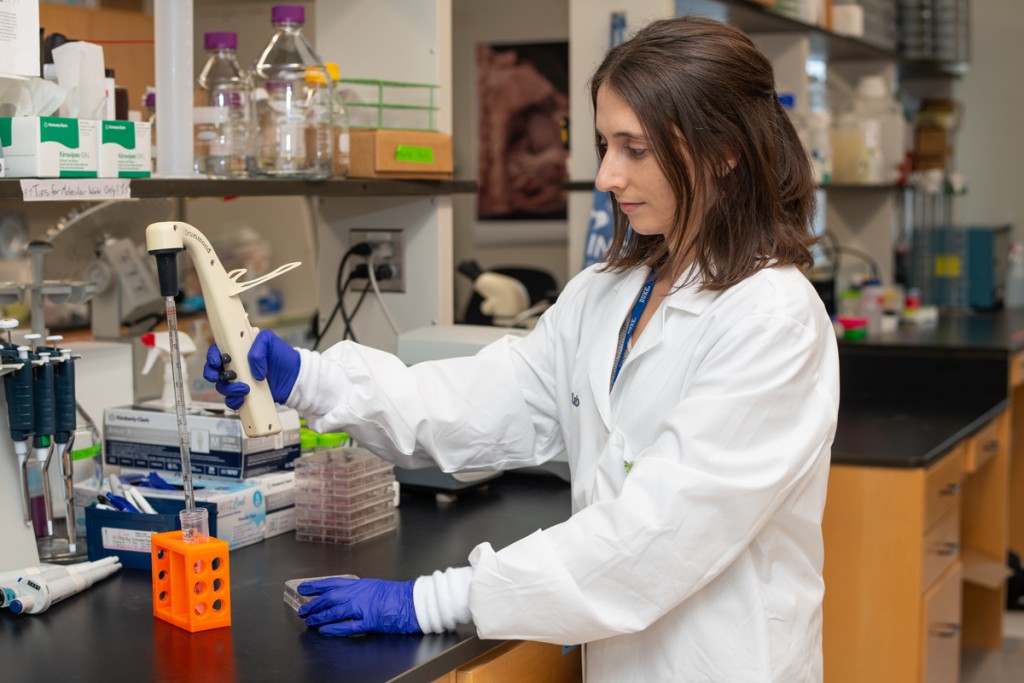
Pilot Projects
The CCSR administers a pilot project program with two overlapping goals: to promote the research programs of promising junior faculty with potential to become future CCSR project leaders, and to encourage the development of new interdisciplinary and collaborative research projects at UNE within the focus of cell signaling.
Preference will be given to projects that target a high-impact clinical challenge or gap in knowledge and address fundamental mechanisms of cell signaling. An additional thematic priority will be projects that address issues related to aging, inflammation, and cellular metabolism, which are areas of strong clinical interest for the University, the state of Maine, and the nation as a whole.
Pilot project grant awardees will be afforded the same mentorship and support from the CCSR program and research cores as the project leaders. These one-year awards can be used to support staff salaries as well as research supplies and the use of external COBRE/INBRE core facilities. Complete instructions for proposal submission will be disseminated in a call for applications later in 2024.

